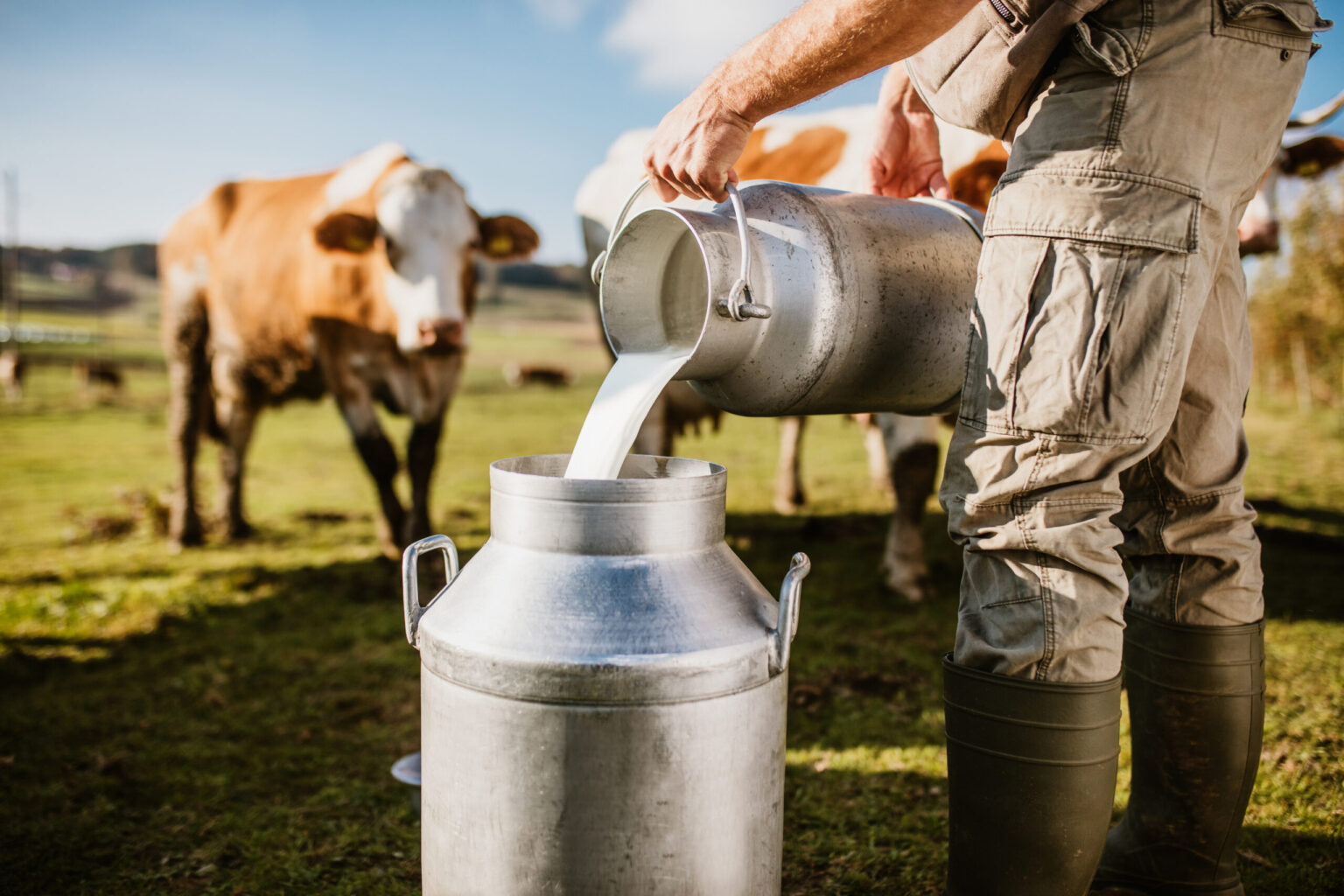As West Virginia legalizes the sale of raw milk, a multi-state outbreak of avian flu among dairy cows continues in nine states.
House Bill 4911, which allows the sale of raw milk, had wide support from Republicans in both the state House of Delegates and the Senate during the regular legislative session earlier this year. Gov. Jim Justice let the bill become law without his signature. The law takes effect Friday.
H5N1 bird flu has so far been detected in 81 dairy cow herds, none of which are in West Virginia, according to the Centers for Disease Control and Prevention. Bird flu usually does not infect humans, but since April 1, three people have become sick with the virus after being exposed to cows.
West Virginia Agriculture Commissioner Kent Leonhardt said even with raw milk sales becoming legal, the risk of the bird flu virus to West Virginians is minimal. The U.S. Food and Drug Administration prohibits the interstate sale of raw milk. By federal order, lactating cows must test negative for avian flu before being moved across state lines.
“We are under that rule right now,” Leonhardt said. “We do not have any of those cows coming into the state of West Virginia.”
Marie Krause, a dairy scientist and an associate professor in the Davis College of Agriculture, Natural Resources and Design at West Virginia University, said the avian flu outbreak is another reason people should avoid raw milk.
“I love dairy products, I really do, I just don’t think [drinking raw milk] is worth the risk,” Krause said. “I don’t think it was worth the risk before H5N1 appeared, and now I just think we have yet another reason not to consume raw milk.”
Even before the H5N1 outbreak in cows, the Centers for Disease Control and Prevention advised people not to drink raw milk or eat products made of it to avoid germs such as campylobacter, cryptosporidium, E. coli, listeria, brucella and salmonella.
Consuming raw milk has been legal in West Virginia through herd-sharing programs since 2016. According to the state Department of Health, over the past 10 years West Virginia has averaged 3.9 foodborne illnesses per year among people who reported raw milk as an exposure. Since 2016, the state has investigated a single suspected outbreak involving raw milk.
Krause noted that the avian flu virus has not been detected in West Virginia cattle, but it has been found in Ohio.
“Ohio is not far from here,” she said. “West Virginia is not a big dairy state. We don’t really have any big dairy herds, but that doesn’t mean it can’t come here and it doesn’t mean our cows can’t get infected. I would not consume raw milk to start with, and I think this is just another reason not to consume raw milk.”
Both Krause and Leonhardt agree that people drinking pasteurized milk are not at risk for the avian flu.
“I want to assure the public that our pasteurized milk supply is safe,” Leonhardt said. “Pasteurization does neutralize avian influenza, and in other states where avian influenza is detected in the milk from those cows. The milk is discarded, it does not get into the food supply. But if it’s pasteurized, it’s safe.”
The pasteurization involves heating the milk to high temperatures to reduce the number of pathogens and the risks associated with drinking the milk, Krause said.
“There are going to be bacteria in milk, and often they enter the milk during the milking process or the handling,” she said. “Or they could be in the cow if the cow is harboring like a low level of infection in the mammary gland. So there are lots of bacteria associated with milk, and milk is a great growth medium for those bacteria.”
Whether or not a person gets sick after drinking raw milk is a “gamble” depending on the bacterial load, she said.
According to Krause, “myths” about the nutritional benefits of drinking raw milk are not based on science. The pasteurization process reduces the pathogens in milk and also slightly decreases the B vitamin contents, but not enough to affect a person’s nutritional status, she said.
“You get plenty of those vitamins from other food sources, and milk is really not that high in B vitamins to start with, except for vitamin B2 riboflavin,” Krause said. “It’s fairly high in that and, and it’s still high in that, even when it’s pasteurized.”
People may think raw milk tastes better, she said, but that may be because it has higher fat content.
The law requires raw milk containers to have the following warning: “Consuming unpasteurized raw milk may increase your risk of foodborne illness, especially for children, elderly, immunocompromised individuals, and persons with certain medical conditions”. In addition, it must include the seller’s address and the date of production.
The legislation authorizes the state Department of Agriculture to consult with the state Department of Health to come up with additional rules for raw milk sales, but so far none have been added. The state Legislature would need to approve them. Leonhardt said he would consult with state health officials to determine if more rules are needed.
“I’m not a health care professional,” Leonhardt said. “… I’m going to reserve judgment on that because I want to hear from health care professionals, if they think so… Generally, there’s other states that have raw milk sales without additional rules. So at this point in time, I think we’ll probably just go ahead and follow the lead.”

